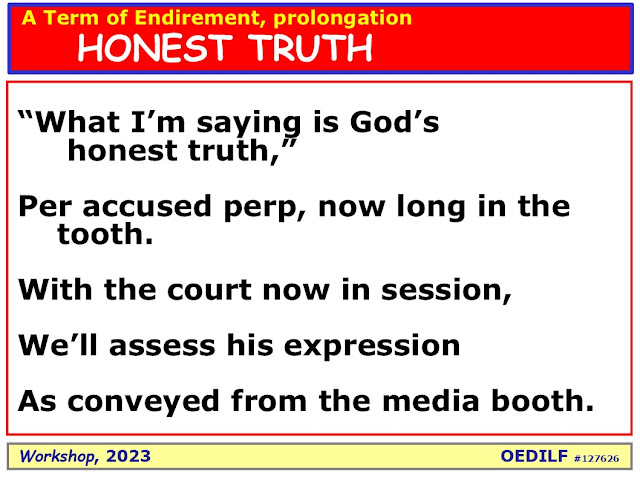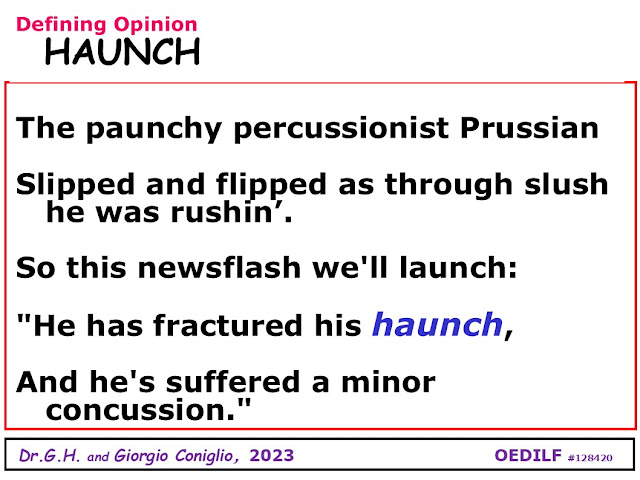a) Reprise of material posted on June 30 in previous years ...
2020: Greek prefixes, an- (poem)
2021: singable satire, sesquic'l, Canada Day 2017 (parody lyrics)
2022: singable satire, Whole Foods (parody lyrics)
2023: singable satire, Under My Own Steam 2 (parody lyrics)
To access the details of any item in slide format, type its title, as displayed above in red font (e.g. ... zero), into one of the two search bars at the the top of your blog-page. Underneath the slide(s) for each entertaining delight that you discover, you will find a clickable link that lets you easily explore a more widespread collection of wonderments (verse, photos, wordplay, song-lyrics etc.) on the topic of your choice.
b) Today's Offering (Jun 30, 2024):
PARODY-LYRICS, subbed into 2 songs.
PARODY COMPOSED: Giorgio Coniglio, November, 2014.

Lexicon:
Pair-ody = satirical lyrics substituted into a mix of 2 original songs
DHS = Department of Homeland Security
CRA = Canada Revenue Agency
BNL = Barenaked Ladies, a well-known Canadian band
ALIEN HEADING SOUTH
(to the tune of "Mr Spaceman")
Woke up this morning, an odd taste in my mouth, and
Then I realized we were due to head south,
Warm U.S. cottage, with dual-cit. spouse -
I hope they won’t keep me out.
Hey, DHS-man, I really hate to ask - I'd
like to stay the max.
Hey, DHS-man, won’t you please let me in for 6 months.
(to the tune of "Alien in New York")
Hey, Mister Inquisitor, I’m just a snowbird-visitor,
I'm sure that I am not the only one;
I’ve sent “Closer Connection”-form, in IRS’s direction, for
I plan to live and die a native son.
You’ll find no trace of felony, of villainy or zealotry
I’m not the sort who plans to overstay.
ISIS I repudiate, I file my taxes never late,In fact I’m on good terms with CRA.
I don't drink Starbuck's, just Tim Horton's, Sir,
Always a donut on the side,
I take my hockey gear everywhere I walk,
I’m myself, a trailer-park Canuck. Whoa-.
–oh, Not some alien: visiting Canadian
A Canadian with his puck. Whoa
–oh, Not some alien: ally, friend, and then some
A Canadian with his puck.
If music makes the man, and threats you rate,
Then I'm the zero of the day,
I play my Lightfoot, Twain, Dion and Stompin' Tom
BNL, Avril, Biebs or Buble.
I'll trade my "loonies" at your banks to shop,
I won’t take anybody’s job,
I’ll hide my views on climate-change and gun-control,
And no one should take me for a snob. Whoa
–oh, Not some alien: passported Canadian
A Canadian with his puck. Say
–eh, Not some alien: ally, friend, and then some
A Canadian with his puck.
(to the tune of "Mr Spaceman")
Hey, DHS-man, I know the rules can change; Iwon’t do anything strange.
Hey, DHS-man, won’t you please let me in for a while.
(to the tune of "Alien in New York")
Say, "eh", Not some alien: visiting Canadian
A Canadian with his puck. Say
–eh, Not some alien: ally, friend, and then some
A Canadian with his puck.




























